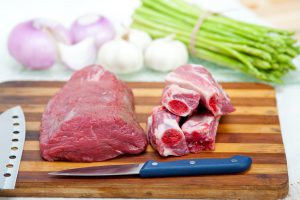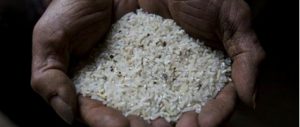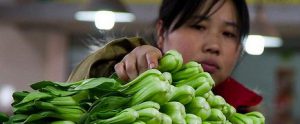Chinese website Throw it out the Window crashed earlier this month after being inundated with visitors, sending this oddly named food-safety portal shooting up the list of hottest topics on Weibo (“Chinese Twitter”).
It’s the sort of event people have come to expect in China. Thanks to the food scandals rocking the country with alarming regularity, how to avoid buying and eating contaminated products has become a key question for an increasingly uneasy public.
Wu Heng, a Fudan University graduate student, launched Throw it out the Window a year ago, with the aim of helping to educate the public on food-safety issues. Essentially, the site is a database of news reports on food scandals; a sort of “Wikipedia of toxic food”. Its name is an allusion to US president Theodore Roosevelt, who is said to have thrown his breakfast sausage from the window after reading about conditions in the Chicago meat-packing industry in 1906. The event is credited with triggering a process that eventually led to the establishment of the US Food and Drug Administration in 1930.
On May 3, Throw it out the Window crashed after 25,000 people tried to access the website in the space of two hours. That day, Wu had posted the results of a survey of food-safety scandals he had carried out a year previously. The survey covered mainland China, Hong Kong and Macau, and all the data came from published media reports. Wu pointed out that journalists – print, broadcast and online – have been responsible for exposing most of China’s food safety scandals.
Wu first started paying attention to the problem of food safety during China’s tainted-milk scandal of 2008, when at least six babies died and hundreds of thousands more fell ill after drinking formula containing poisonous chemical melamine. His subsequent decision to throw himself headlong into the food-safety cause (along with stints working on education programmes in Ningxia, one of China’s poorest provinces) set his master’s in historical geography back by two years. Wu is expected finally to graduate next month.
The report took 31 days to compile and involved 34 people. The student team analysed 17,268 news reports – or one million Chinese characters worth of material – which they filtered down to 2,107 items. From each of these, they pulled out keywords, such as the location of the event, the type of food affected and what harm it could do to the human body, making it easy to create statistics and conduct searches.
Wu and his fellow students also sorted the type of food scandal into 10 different categories, based on China’s Food Safety Law. These included: fake food; out-of-date food; food with added agents; food mixed with foreign matter; problem packaging; food sold without a licence; sub-standard food; food that has not passed quarantine inspection; and unhygienic food. Wu conceded, however, that since none of the team was qualified in food safety, the classification system was "not entirely scientific".
The five provinces and municipalities with the greatest number of reported scandals were Beijing, Guangdong, Shandong, Shanghai and Zhejiang, according to the report. Beijing’s lead was significant: the capital made up 20% of all the collated food scandals, equivalent to the combined total of Guangdong and Shandong provinces.
Wu said he wants to know why the food safety problem has become so severe. Is it something to do with Chinese history, or Chinese culture? Is it because of a lack of morals? Or is it just “the system”? Analysing the data, he became increasingly dispirited by the unscrupulous behaviour of dishonest traders, and an idea began to form: what if he were to award the worst cases a “prize” and tell the world about it?
For inspiration, he looked to New York Times best-selling author Wendy Northcutt, who created the Darwin Awards after zealously collecting stories of human idiocy. The awards, says its website, “commemorate individuals who protect our gene pool by making the ultimate sacrifice of their own lives. Darwin Award winners eliminate themselves in an extraordinarily idiotic manner, thereby improving our species’ chances of long-term survival.”
And so Wu decided to set up the “China Food Darwin Awards” for the worst offenders in the business – those “whose aim it is to destroy the food of the Chinese people”. The prize is decided by a public poll. By September 11 last year, reports of Chongqing waste-scavengers turning residue from household rubbish into “gutter oil” topped the list with 918 votes.
The prize money is 1.4 yuan (US$0.22), which in Chinese has the same pronunciation as the phrase “die together”. A prize and certificate are also given to the media outlet responsible for exposing the winning scandal. Wu said: “We thank the media for its professionalism. When it is difficult to decide on a winner, the award will be carried over to the next round.”
Wu praised the courage and sense of responsibility of journalists reporting on China’s food-safety scandals. But, he added, they are no doubt helped by the fact the people to blame for tainted foods are often at the bottom of the production chain – and have neither the capacity nor the know-how to manage the media.
The primary goal of Wu’s investigation was to catch the attention of the public, and inspire more qualified people to get involved with research in this field, he said. Another aim was to make sure “these more than 2,000 articles, which demonstrate the good work being carried out by the media for society, are not forgotten.”
Wu does not claim to have produced a professional study. His team was made up of students, rather than journalists or food-safety experts, and had just one month to collect all the data. More importantly, the investigation didn’t include any on-site interviews; it simply compiled and analysed news reports. As a result, the study may have many holes, Wu said.
But since his main purpose was to get more people to wake up to China’s food-safety problems, and to work together to solve the problem, Wu believes it was a worthwhile exercise. As unsafe food gets increasing coverage in the Chinese press, more and more people will pay attention to food safety, he said. And, in turn, policymakers will be forced to focus on and think more deeply about how to use legislation to solve the problem. That, said Wu, is a future to look forward to.
In recent weeks, Wu’s website has focused on China’s latest mega scandal: CCTV’s discovery that industrial gelatin made from leather scraps was being used to make medicinal capsules. On 22 April, Wu added this information to his database, noting that the story had made him “really desperate”.
He added he was disappointed to discover that articles he had written in the past about food safety are still relevant today. “Usually, it’s the biggest prize for a writer if his work stays fresh, but all I feel is a deep sense of powerlessness.”
Wu Jiawen and Han Xiaorong are reporters at The Oriental Morning Post, where this article was originally published.
Homepage image by The Oriental Morning Post




